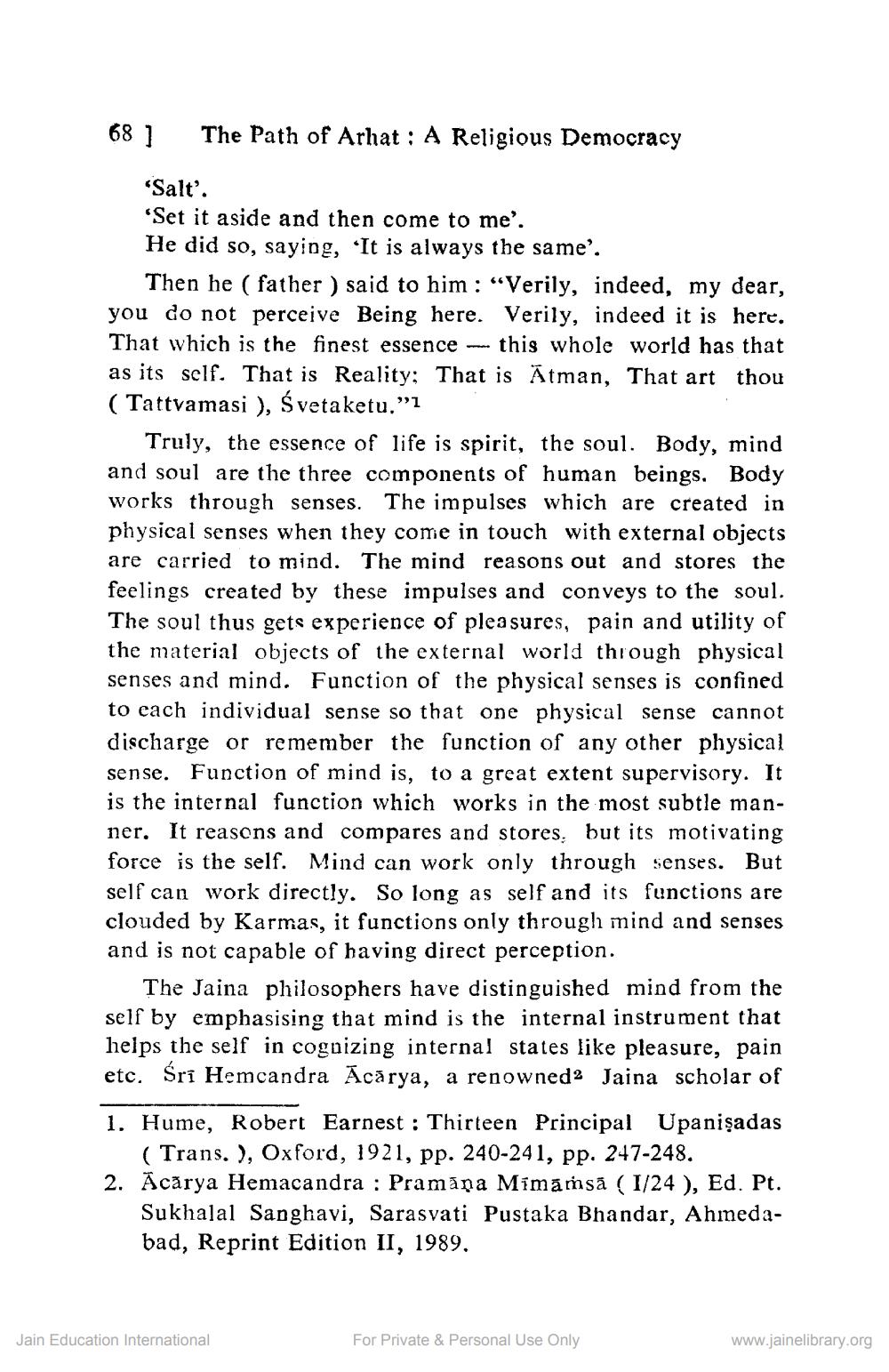________________
68 ]
The Path of Arhat : A Religious Democracy
"Salt. "Set it aside and then come to me'. He did so, saying, 'It is always the same'.
Then he ( father ) said to him: “Verily, indeed, my dear, you do not perceive Being here. Verily, indeed it is here. That which is the finest essence -- this whole world has that as its self. That is Reality; That is Ātman, That art thou ( Tattvamasi ), Svetaketu.”1
Truly, the essence of life is spirit, the soul. Body, mind and soul are the three components of human beings, Body works through senses. The impulses which are created in physical senses when they come in touch with external objects are carried to mind. The mind reasons out and stores the feelings created by these impulses and conveys to the soul. The soul thus gets experience of pleasures, pain and utility of the material objects of the external world through physical senses and mind. Function of the physical senses is confined to each individual sense so that one physical sense cannot discharge or remember the function of any other physical sense. Function of mind is, to a great extent supervisory. It is the internal function which works in the most subtle manner. It reasons and compares and stores, but its motivating force is the self. Mind can work only through senses. But self can work directly. So long as self and its functions are clouded by Karmas, it functions only through mind and senses and is not capable of having direct perception.
The Jaina philosophers have distinguished mind from the self by emphasising that mind is the internal instrument that helps the self in cognizing internal states like pleasure, pain etc. Śrī Hemcandra Ācārya, a renowned2 Jaina scholar of 1. Hume, Robert Earnest : Thirteen Principal Upanişadas
(Trans. ), Oxford, 1921, pp. 240-241, pp. 247-248. 2. Ācārya Hemacandra : Pramāpa Mimamsā (1/24 ), Ed. Pt.
Sukhalal Sanghavi, Sarasvati Pustaka Bhandar, Ahmedabad, Reprint Edition II, 1989.
Jain Education International
For Private & Personal Use Only
www.jainelibrary.org




